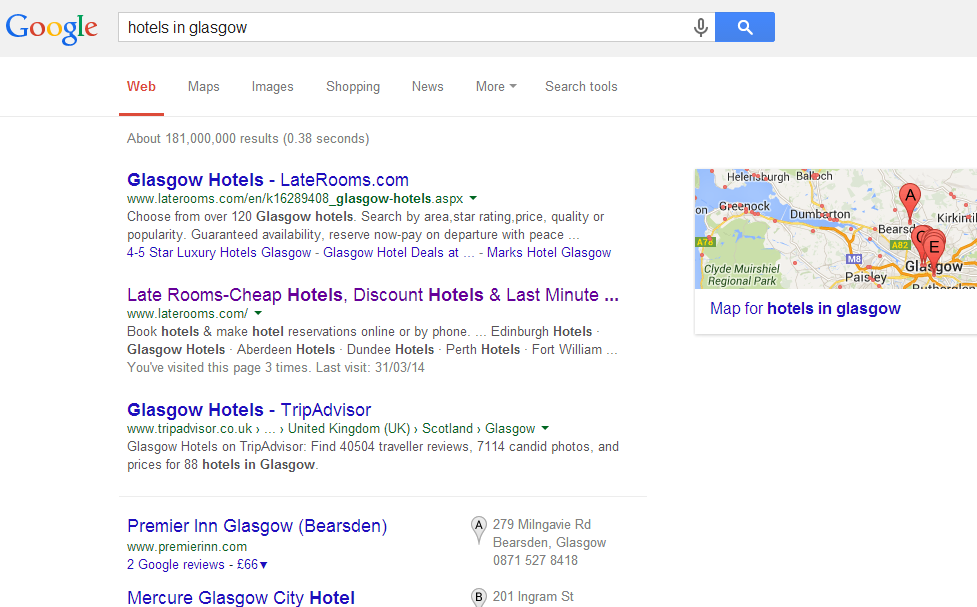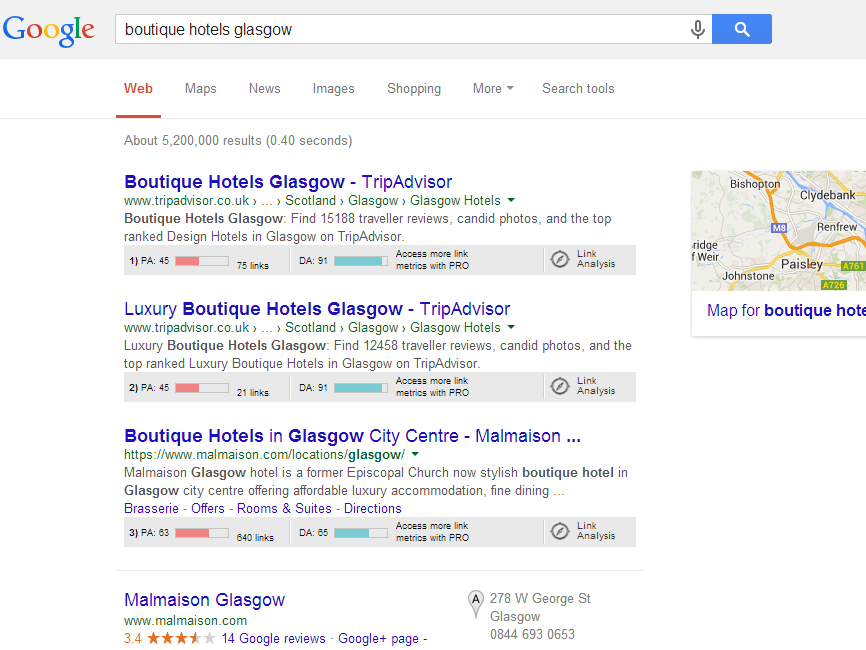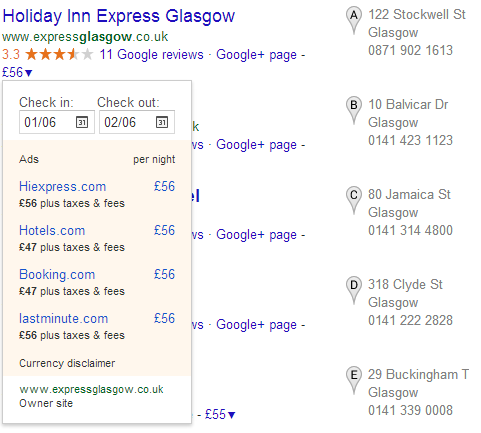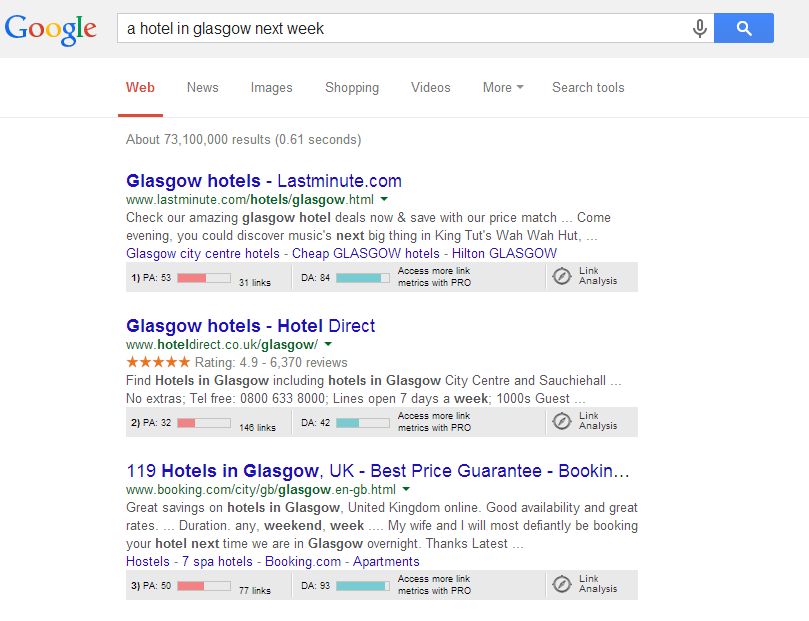One thing we spend a lot of time analysing is keywords. And one way of being able to get content to a relevant customer base is to make sure you’re able to think like that customer.
What one person types in for their search can be completely different from what another types. It could depend on the brand name someone uses, the location they use, the immediacy of their request and what they’re willing to pay, amongst many other numbers of factors. One easy area to showcase this is with hotels. Everybody has searched for a hotel online at some point and knows that it can either be either a relatively simple process or one that makes you want to throw the laptop off the table when you can’t find what you want.
So what do is it mean when we say a search can depend entirely on how a user modifies it? Well, we chose the common process of searching for hotels and can show you how what you type can deliver incredibly different results. It all depends on what you’re thinking about when you search.
We’ll start with a common term: ‘hotels in glasgow’. Why Glasgow? Because its where Boyd Digital is located of course. You’ll see that the top two results come from the same site and show a level of dominance over the keyword. Google knows that you’re searching for a hotel in a specific area and has listed the results just below the top 3 based on a map of hotels in the area. These hotels are listed first because their sites fit in with information Google can use to make it more visible.
Of course, you can narrow down these results even more before clicking on any links by modifying the keyword. Searching for ’boutique hotels glasgow’ brings back results that are now much more relevant to the users desire. Now the top two results come from TripAdvisor which might seem odd, but consider that someone who clicks on those pages would start reading a lot of information. This in turn would lead to a longer time for average page view and then incentive to click through options on-site (in the form of pop-ups from booking sites), helping you’ll understand why a top name like Malmaison ranks below something that isn’t a boutique hotel. Malmaison though has the distinction of ranking as the top listing on the map/directory list, giving it twice as much relevancy on the first page.
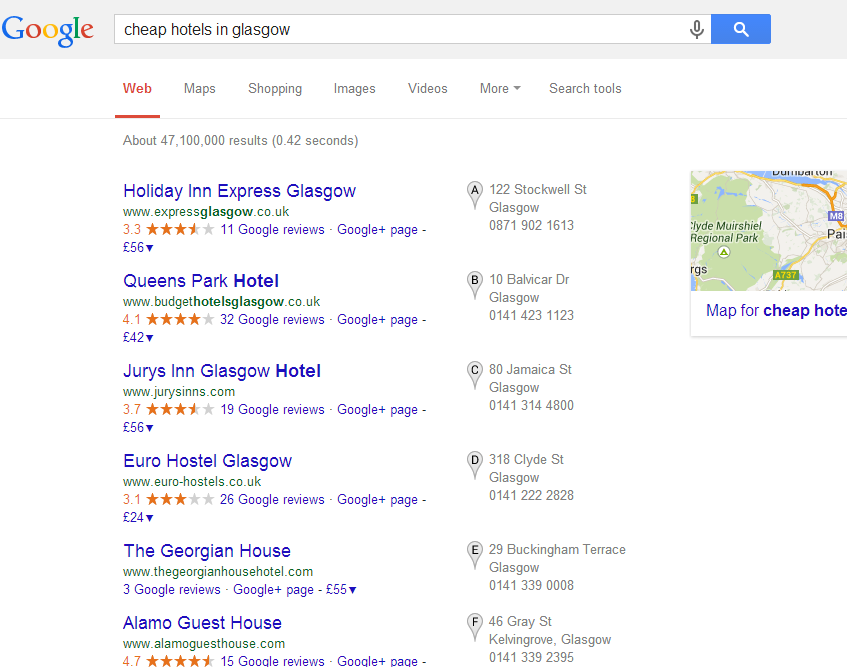
At the other end of the price scale, and a much more popular term to search for, ‘cheap hotels in Glasgow’ is a term that Google understands to be popular and very much driven in one direction. So why do the map/directory listings come up first? Compare the number of results in this example to the one above. 47 million results compared to 5.2 million shows that a lot of people are looking for the right content and sites for finding cheap rates on hotels in Glasgow. For the top four results. not only do you get to see where they are, but also see what Google reviewers rated the hotel and more importantly, the price of a room in said hotel. Google is minimising the amount of time someone will spend searching through sites and keeping the user on the SERP instead, replacing the need for someone to go on a site like TripAdvisor.
It does this with the use of that little price icon. Because the top results are all from big chains, it’s certain that the sites will be giving the right data to Google in order to drive customers eyes towards their offering and not one lower down. Packing everything a user wants, at first sight, lowers the chance of comparison and bounce back from the real site.
But what about when the search is something that is immediate? Sometimes Google will misinterpret what you’re looking for. Searching for a term like ‘a hotel in glasgow next week’ won’t work because it isn’t something that many people would naturally type as a search. What you end up with are general pages about hotels in the area, rather than something like that booking engine you seen above. It’s an example of how a keyword modifier can seem like it will deliver specific results but can push you in the wrong direction. (Just notice how in the second result ‘week’ is attributed to contact details)
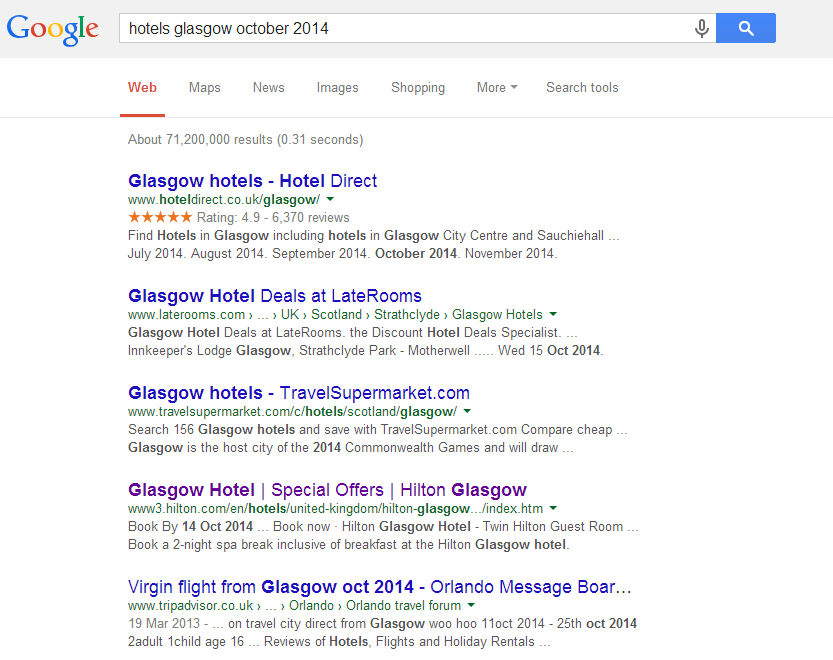 Of course, this can also happen when a person plans ahead. It would seem that searching for ‘hotels glasgow october 2014’ is bringing up the same types of results, but looking a little closer can reveal some nuggets of gold. The link we already clicked on for the Hilton brings us to a special offers page, giving us the chance to book rooms at a cheaper rate. Offer pages like this work well because they don’t have to scream ‘CHEAP ROOMS NOW’ but can exist on a seasonal and holiday-themed basis in order to work.
Of course, this can also happen when a person plans ahead. It would seem that searching for ‘hotels glasgow october 2014’ is bringing up the same types of results, but looking a little closer can reveal some nuggets of gold. The link we already clicked on for the Hilton brings us to a special offers page, giving us the chance to book rooms at a cheaper rate. Offer pages like this work well because they don’t have to scream ‘CHEAP ROOMS NOW’ but can exist on a seasonal and holiday-themed basis in order to work.
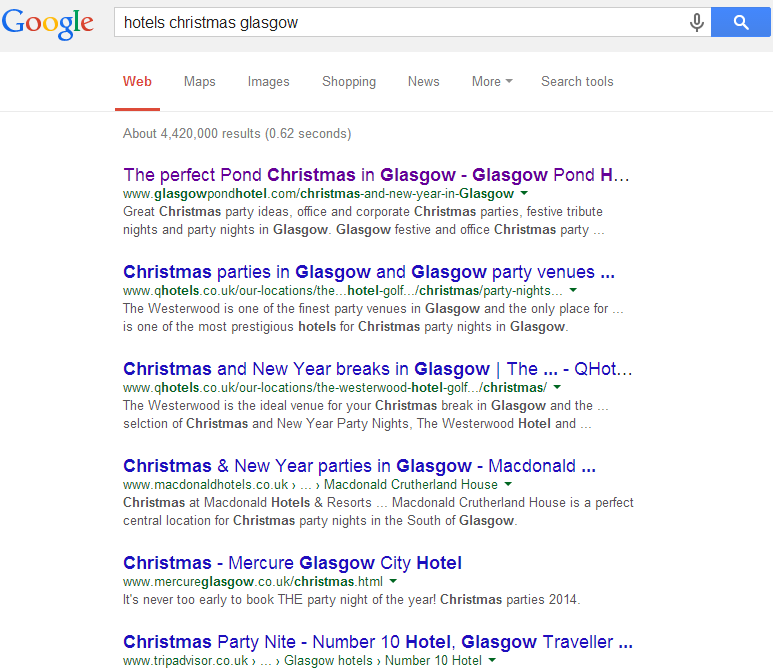
As you can see from the above example, even though we’re searching for Christmas in the middle of summer, relevant pages for hotels show up. And these pages will face little fluctuation over time because they age well. It’s one case where having a themed page live all year round can improve a keyword’s ranking and standing when that time of year comes by again. All it takes is a little bump back near the homepage of a site for the keywords to stay relevant, and more importantly, improve revenue. And all it takes is having a piece of content relevant to a keyword modifier present.


